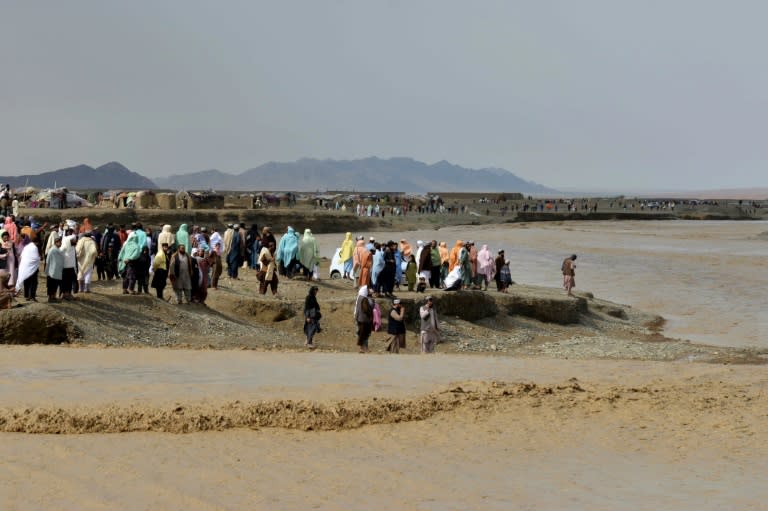Flash floods kill 62 in one day in north Afghanistan

The toll from deadly flash flooding that ripped through northern Afghanistan on Friday rose to 62 people, mainly women and children, an official said, in a country highly vulnerable to climate change.
A disaster management official in the northern province of Baghlan said heavy seasonal rains sparked the flooding, and residents were unprepared for the sudden rush of water.
"The number of dead in today's flood in Baghlan province has risen to 62," Hedayatullah Hamdard, the head of the provincial natural disaster management department, told AFP.
The toll "will probably increase" he said, adding that light rain had continued into the night in multiple districts of the province.
Emergency personnel were "searching for any possible victims under the mud and rubble, with the help of security forces from the national army and police", Hamdard said earlier.
Dozens of tents, blankets and food were provided to those who lost their homes, he added.
Video footage seen on social media showed huge torrents of muddy water swamping roads and bodies shrouded in white and black cloth.
In one video clip, children are heard crying and a group of men are looking at floodwaters, in which bits of broken wood and debris from homes can be seen.
Since mid-April, flash flooding and other floods have left about 100 people dead in 10 of Afghanistan's provinces, with no region entirely spared, according to authorities.
Farmland has been swamped in a country where 80 percent of the more than 40 million people depend on agriculture to survive.
Rains on Friday also caused heavy damages in northeastern Badakhshan province and central Ghor province, officials said.
- 'Heavy financial losses' -
Taliban government spokesman Zabihullah Mujahid said authorities would provide support to those impacted by the flooding across the country.
The government "expresses its deep sympathy with the families of dead and wounded, and instructs the ministry of natural disaster management, ministries of defence and interior, and provincial authorities to spare no resource in rescue efforts", he said in a statement on X, formerly Twitter.
Mohammad Akram Akbari, the provincial director of natural disaster management in Badakhshan, said the mountainous province had seen "heavy financial losses in several areas... due to floods".
He added that casualties were feared in Tishkan district, where flooding had blocked a road and cut off access to an area where some 20,000 people lived.
Afghanistan -- which had a relatively dry winter, making it more difficult for the soil to absorb rainfall -- is highly vulnerable to climate change.
The nation, ravaged by four decades of war, is one of the poorest in the world and, according to scientists, one of the worst prepared to face the consequences of global warming.
Afghanistan, which is responsible for only 0.06 percent of the world's greenhouse gas emissions, ranks sixth on the list of countries most at risk from climate change, experts say.
Half of Afghanistan's population lives under the poverty line, and 15 million people are experiencing food insecurity, according to the World Bank.
abh-sw/sst

 Yahoo News
Yahoo News 
